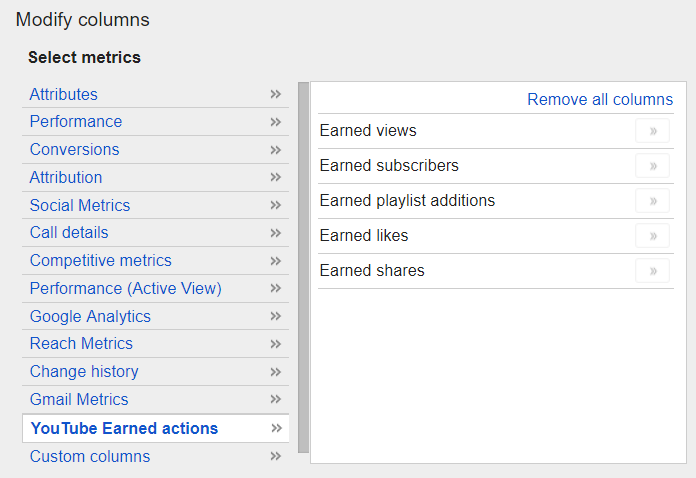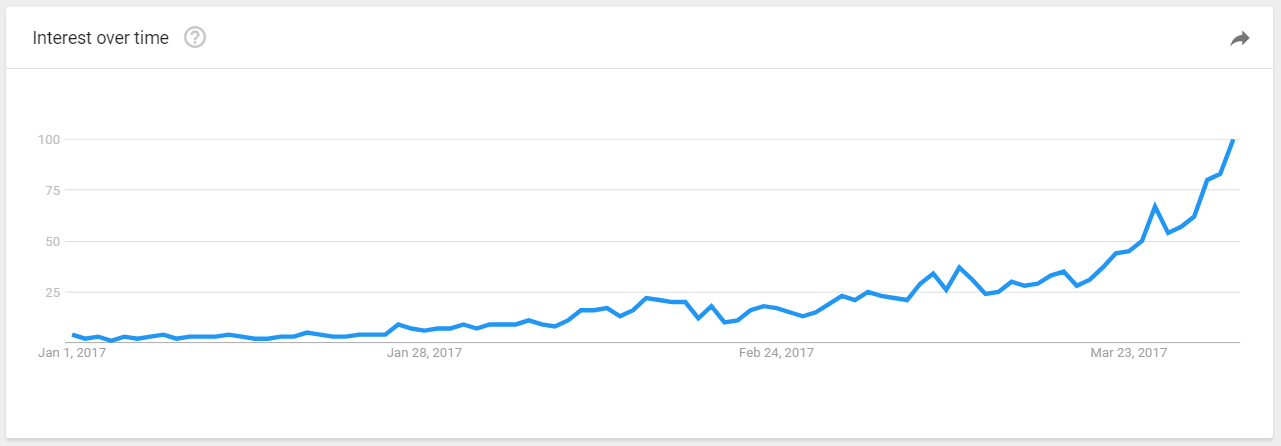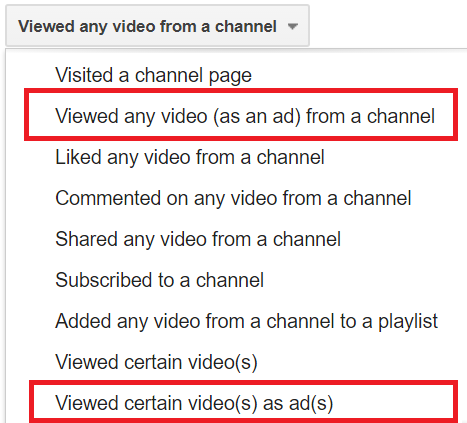This post is shared with you from Joe Martinez, Senior Manager, Paid Media & Community at Granular Marketing. Joe ranked in the Top 10 highest rated speakers, voted by attendees, at Hero Conf Los Angeles and is joining our 2018 lineup once more. See him live at Hero Conf Austin, April 16-18. Early Bird tickets have sold out, but we have extended the 40% off rate through November 30!
It’s easy to get discouraged when working on a video campaign. We’ve been programmed as PPC marketers to concentrate on the direct return. It’s hard to look at the overall worth of an awareness channel when we’re so used to focusing on last-click attribution.
When monitoring my YouTube campaigns, I do look at conversions. Direct return, however, is just one of a few areas I check. If I’m building awareness, I need to see how my YouTube campaigns are helping the overall marketing goals. If you’re using YouTube for awareness, you need to shift your goals from direct return KPIs to brand lift KPIs. I’m going to show you how you can see if your YouTube ads are successful or not.
Monitor Your Earned Actions
In the AdWords interface, you have the option to customize the columns you see. When I’m filtering to view only my video campaigns, I also like to create a custom set of columns specifically for video. The first five columns I add for video are the earned actions. These include: Earned views, earned subscribers, earned playlist additions, earned likes, and earned shares.

Typically, an advertiser will pay when a user watches a certain percentage of your video (depending on what campaign format and video length). Advertisers will also get charged if a user interacts with your cards such as ad overlays, Shopping cards, etc. If the same user goes on to view other videos after seeing your ad, subscribes to your YouTube channel, or shares videos with other users, you don’t pay for these additional actions. These are the “Earned actions.”

You may find out viewers are not directly going to your website and converting after seeing your video ad. What you may find out, however, is your video ads sparked a curiosity within the viewers. Enough so that they wanted to seek out more information by looking at other components of your YouTube channel. Use earned metrics as a way to measure success for potential customers who are at the very top of your funnel. To take things one step further, you can create remarketing audiences in AdWords for users who like any video, comment on any video, shared any video, subscribed to your channel, or added any of your videos to your playlist. So if you’re growing these remarketing audiences for free, you’ll be able to enhance your remarketing campaigns with users who were really engaged with your videos.
Monitor Relevant Search Trends
Well-targeted awareness campaigns, whether display or video, will help boost your brand awareness. As more people know about your brand, the more likely those people will search for your brand name, products or services (assuming your campaign targeting is on point). As you focus more on building awareness, you should really look at Google Trends to see what impact your efforts may have on search traffic.

Keeping an eye on search trends is another situation where you may need time to see any notable lifts. Running a video ad for a week on a $5.00 a day budget probably won’t have a huge impact. As you can see in the examples just above and below this paragraph, it took a couple of months to see noticeable impact for this particular client. You can’t expect every person who sees your video only one time will go straight to Google to look for your products. You’re going to have to embrace a longer, multi-frequency approach to keep hitting the message home. And as you focus on building interest with relevant users, you should expect to see an increase in searches/impressions for your brand keywords.

Mega grain of salt alert! You can’t take the data in Google Trends and view it as a direct performance indicator from your PPC efforts. You must have an understanding of all the marketing efforts your business is working on. Do you know if your company increased social media efforts? Did your company have a big PR push which landed them on TV, in the news, in a magazine, etc? Did your company launch other Display campaigns? Or did you just flat out spent more money than previous? There are a lot of questions you need to ask yourself about awareness growth. Don’t take credit for all of the growth if there were other channels besides YouTube in the mix. But if video ads are the only change in your efforts to drive awareness, see if you notice a change in search trends related to your brand name or related products and services which were promoted in your videos.
Use Audiences to Show YouTube’s Impact on Search Traffic
In the Shared Library within Google AdWords, advertisers can create several remarketing audiences based on user interaction with your YouTube videos or channel. The two audiences I want to focus on for the sake of this post are, “Viewed any video (as an ad) from a channel” and “Viewed certain video(s) as ad(s).” The goal here is to make sure we’re looking purely at our video ad performance without organic video results mixed in.

After you have your desired YouTube ad remarketing audiences created, and they’ve accrued enough users to be eligible, add them to every one of your Search campaigns as Observations audiences. For those not familiar with the change, Observations is what “Bid-only” audiences used to be called. Keep the bid modifier percentage at zero if you’d like. Initially, we just want to collect data on how users who viewed your videos as ads come back and search for our target keywords.

After you implement the audiences into our campaigns (or ad groups if you choose), you’ll be able to see how many people are coming back and searching for your brand name or any other important keywords to your business. You’ll now have additional information, on top of assisted metrics, to go back and show the impact your YouTube campaigns have had on all of your Search campaigns in AdWords.
Don’t Give Up on YouTube
As we edge closer to 2018, embracing YouTube as part of your paid strategy should always be considered. If you have previously tried video ads in AdWords and have since paused, try it again. Step back from direct return goals and look at top of the funnel metrics. Research the worth of your efforts using the methods we just went through. Step back from looking at YouTube as just a direct-return channel. Try and find out how YouTube ads are helping your overall business goals. I bet you’ll find out your YouTube ads are having a bigger impact than you previously thought.
Learn more from Joe and 40+ PPC experts at Hero Conf Austin! Extended 40% off Early Bird rates expire November 30.





